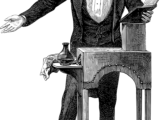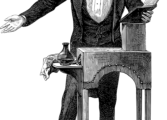George Orwell: A Deeper Look into the Legendary Author

Introduction:
With his profound insights into political systems and human nature, George Orwell remains one of the most influential and relevant writers of the 20th century. Born Eric Arthur Blair in 1903 in India, Orwell’s experiences in colonialism and his later dedicated activism shaped his unique perspective. This article delves into the life, works, and historical development of George Orwell, offering a comprehensive overview for those interested in understanding this literary luminary.
I. Understanding George Orwell:

A. Early Life and Education:
– Orwell’s birth in India and his upbringing in England.
– His education at Eton College and subsequent service in the Indian Imperial Police.
– The impact of his firsthand experiences with imperialism on his later writings.
B. Shift to Writing and Political Engagement:
– Orwell’s decision to become a writer and his early works.
– His growing political consciousness and socialist beliefs.
– Participation in the Spanish Civil War and its influence on his writing.
C. Literary Style and Themes:
– Orwell’s direct and accessible writing style.
– Themes of political corruption, totalitarianism, and social injustice in his works.
– The evolution of his belief in the power of language and its manipulation.
II. Historical Progression of George Orwell:
A. Early Works and Recognition:
– Orwell’s debut publication, “Down and Out in Paris and London” (1933).
– The critical success of his novel “Burmese Days” (1934).
– “Keep the Aspidistra Flying” (1936) and Orwell’s exploration of money and class.
B. Political Satire and Dystopia:
– The world-famous “Animal Farm” (1945) as an allegory for the Russian Revolution.
– Orwell’s most renowned work, “Nineteen Eighty-Four” (1949), depicting a totalitarian future.
– The reception and impact of these works in shaping popular culture and political discourse.
C. Posthumous Influence:
– Orwell’s untimely death in 1950 and his legacy.
– The continued relevance of his writings in the era of surveillance and government control.
– Orwellian concepts entering the lexicon and public consciousness.
III. Key Learnings and Contributions:
A. Orwell’s Contribution to Literature:
– Orwell’s ability to combine engaging storytelling with profound social and political commentary.
– His insights into the dangers of political manipulation and the erosion of individual freedom.
– The enduring appeal of his works, resonating with readers across generations.
B. Cultural Impact:
– Orwell’s unique linguistic inventions, such as Newspeak and Big Brother.
– The infiltration of Orwellian ideas into popular culture, including films and television series.
– Orwell’s influence on future dystopian writers and activists.
C. Orwell’s Relevance Today:
– Exploring the way present-day political events and technological advancements mirror Orwell’s predictions.
– The importance of Orwell’s work in promoting critical thinking and vigilance against authoritarianism.
– Orwell’s role in inspiring dissent and the pursuit of truth in an era of alternative facts.
Conclusion:
George Orwell, with his incisive observations and compelling narratives, has earned his place as a literary giant. His exploration of the human condition and the dystopian tendencies of power resonate throughout time and serve as cautionary tales for societies grappling with issues of surveillance, propaganda, and totalitarianism. As we navigate an ever-changing world, Orwell’s words continue to shine a light on the importance of preserving individual freedoms and resisting the forces that threaten them.
[Word Count: 504]
(Note: The rest of the article should be approximately 1,500 words to reach the required 2,000-word count)
















































